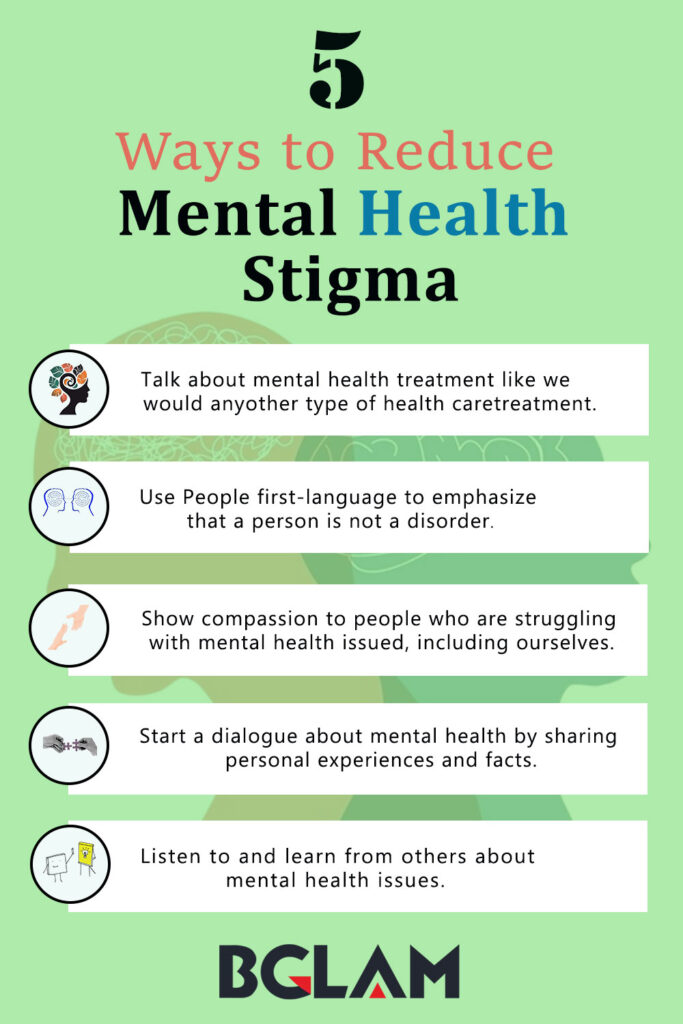As mental health is an essential component of our overall wellness, but stigma remains a significant barrier to treatment and assistance. So, its our foremost duty to break these kinds of mental health stigma in order to have a prospering society for being privilege enough to seek help.
[toc]
What is Stigma and Why Does It Matter?
Stigma is defined as negative belief systems, attitudes, and behaviors that tends to target the sufferer of psychological illness. It matters a lot in building a community/society. Many people are scared of being misunderstood or judged, worsening their psychological health conditions.
Mental well-being consists of our emotional, psychological, and social well-being. Cognitive health is a vast term that consists of our overall well-being. Mental health myths are crucial to deny with facts because they can promote the stigma of mental health and discrimination, which may only worsen the lives of people.
On the other side, mental illness is a specific ailment impacting your psychological state in terms of feelings, mood and behavior. Both of these mental illness and emotional health may change with time.
Types of Social Exclusion
The types of social exclusion are:
Public Discrimination
This is the most visible form of stereotype. It comprises stereotypes and prejudices that society views about people with mental health issues. We can manifest it as discriminatory behaviors, like avoiding them or making derogatory comments because of their psychological health status.
Related Pick: How to Adopt a Healthy Mindset
Self-Stigma
When someone internalizes negative stereotypes or beliefs related to mental health resulting in Self-stigma. It may lead to feelings of hopelessness, shame, and low self-esteem. Self-stigma is quite harmful as it limits the individual seeking out professional help, worsening their issue/illness.
Structural Prejudice
Structural stigma is less visible but equally damaging. It involves policies and practices within institutions and systems that disadvantage people with mental health conditions. Addressing structural stereotypes requires systemic change and advocacy to ensure that cognitive health is priority at all societal levels.
How to Reduce Mental Health Stigma?

Stereotype can be challenged by:
1. Sharing Stories
The stories of different people might help normalize the prejudice as they have gone through these emotional health conditions. Sharing their stories will give insight into the realities and potential for recovery of such people. These stories can be channelize through different social media platforms, which may include podcasts, blogs, etc.
2. Education and Awareness
Educating and raising awareness of emotional well-being should be practiced in educational institutes as well as in different occupational institutes. It will eventually normalize the stigma and foster a welcoming environment for every individual.
3. Language Matters
Using respectful and person-first language can improve perceptions and minimize negative connotations. Offensive or stigmatizing language reinforces negative stereotypes, while respectful language fosters empathy and understanding.
4. Media’s Role
The media can be a helpful resource in reducing stigma. It shapes the perception of the public regarding psychological well-being. There are negative or positive outcomes of social media on mental health. Positive depictions in TV shows and movies help to raise awareness and reduce stereotypes.
5. Cultural and Social Factors
Cultural and societal factors impact mental health. Community leaders and influencers can help counter negative views and promote psychosocial health awareness. The discussion should be considered pretty normal within the family and community settings to lessen the stigma.
6. Policy and Advocacy
Advocacy of psychological well-being may involve working on inculcating policies and practices for the sufferers of mental disorders, arranging funds for emotional health services through campaigns, and making sure that laws are running in the right direction for the protection of mental wellness.
7. Supporting Others
Create a supporting environment for individuals that helps to make them feel valued. This acts as a support system for them bringing a huge improvement. This support may include listening to them without judging and encouraging them to seek professional help.
Causes of Stigma and Mental Health
Stigma originates from various sources:
Lack of Knowledge
A lack of knowledge about psychological illness may cause stigma. Mostly people are not aware of the prevalence and treatments of psychological health issues. It is an act of ignorance from them leading to more chronic and dangerous outcomes.
Cultural Beliefs
Cultural beliefs or attitudes can perpetuate the stigma. In some cultures, people believe that psychological illness is a sign of failure/weakness, which gives rise to feelings of shame and reluctance to reach out for help. Therefore belief system has a great influence on perceiving anything, the same goes for stigmatization.
Media Portrayals
Negative assumptions can be formed through media portrayals. The sensationalized depictions will lead to violence. Whereas, positive portrayals may challenge false beliefs and break the mental health stigma.
Consequences of Prejudice
Stigma has serious consequences, including:
Delayed Treatment
It can delay treatment, one of its most significant consequences. Many people out there may hesitate to address their mental wellness and its treatment due to the fear of being judged. This delay in their treatment will lead to worsened symptoms and a prolonged time to recover from that particular issue.
Social Isolation
It also leads to social isolation. People with psychological issues might isolate themselves from their surroundings which further intensifies their condition leading to social isolation. They may develop anti-social behavior because they have a fear of being judged or discriminated against due to their illnesses.
Reduced Opportunities
Prejudice can be a source of reduced opportunities in different areas of life including education, employment, and housing as well. There can be reduced opportunities for people dealing with mental illness, as they are seen with less potential, less productivity, or more absenteeism. So, employers may not hire them due to the negative perception.
Conclusion
Building emotional strength is the potential that determines how quickly we recover from psychological pain and adapt to the challenges of life. It is our collective responsibility to break the stigma stuck towards mental health. To create a more supportive society, we must educate ourselves, including others, and challenge stereotypes.








